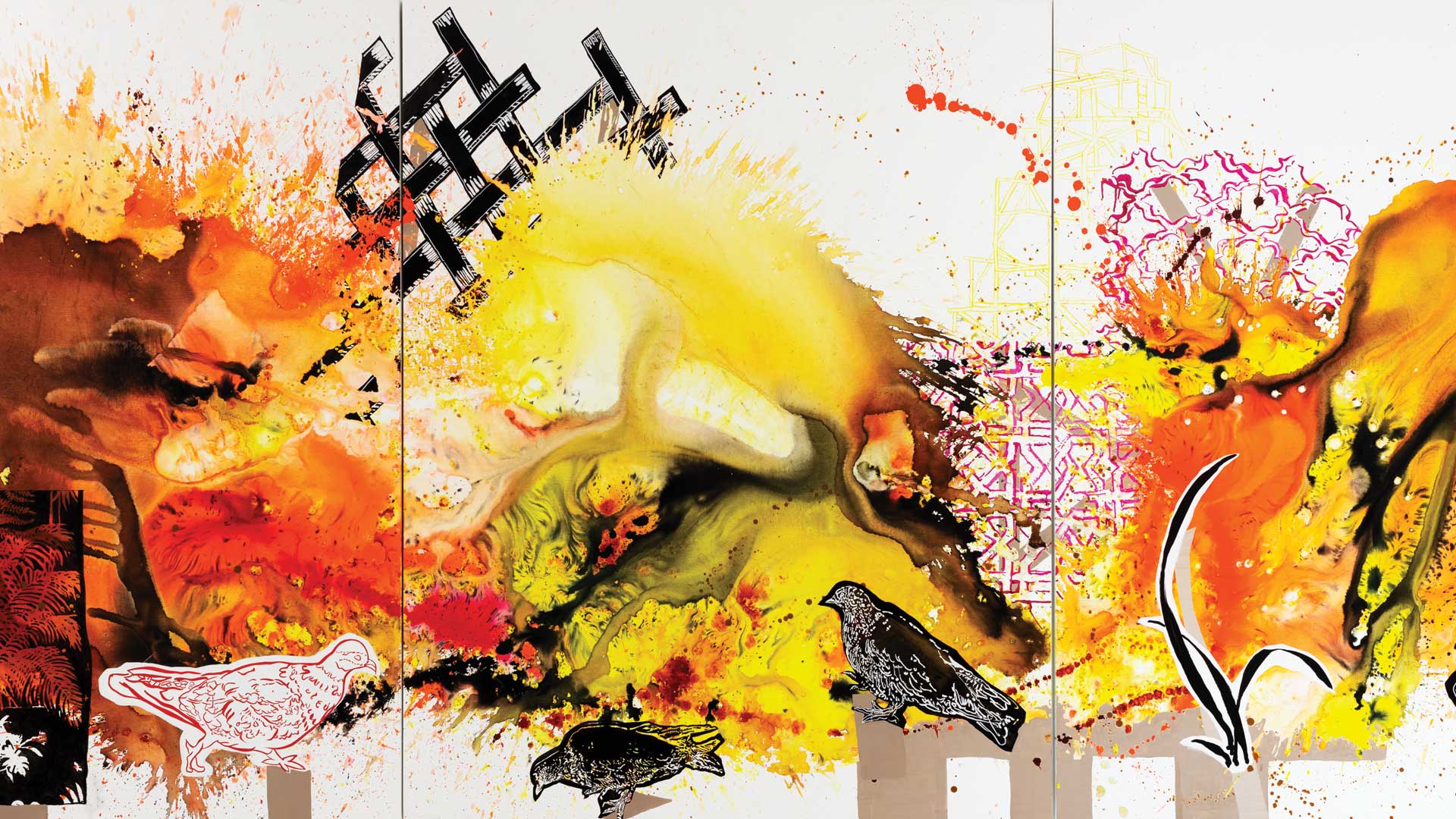When Elisabeth Condon approaches a blank canvas, it’s with aspirations as beautiful as the paintings she creates: to give viewers a time-suspended experience of complete awe and wonder.
“I want them to expand their ideas of what beauty is,” she says. “I want to give them visual magic that speaks to them over time and invites them to have a conversation with it.”
Her passion and enthusiasm radiate as she chats about her work in her backyard studio in Tampa. Condon, who splits her time between Tampa and New York City, creates bold, colorful landscapes that combine nature, decor and abstraction. Sweeping scrolls, unexpected shapes, nods to vintage fabrics and even occasional glitter are among the elements that delight viewers.
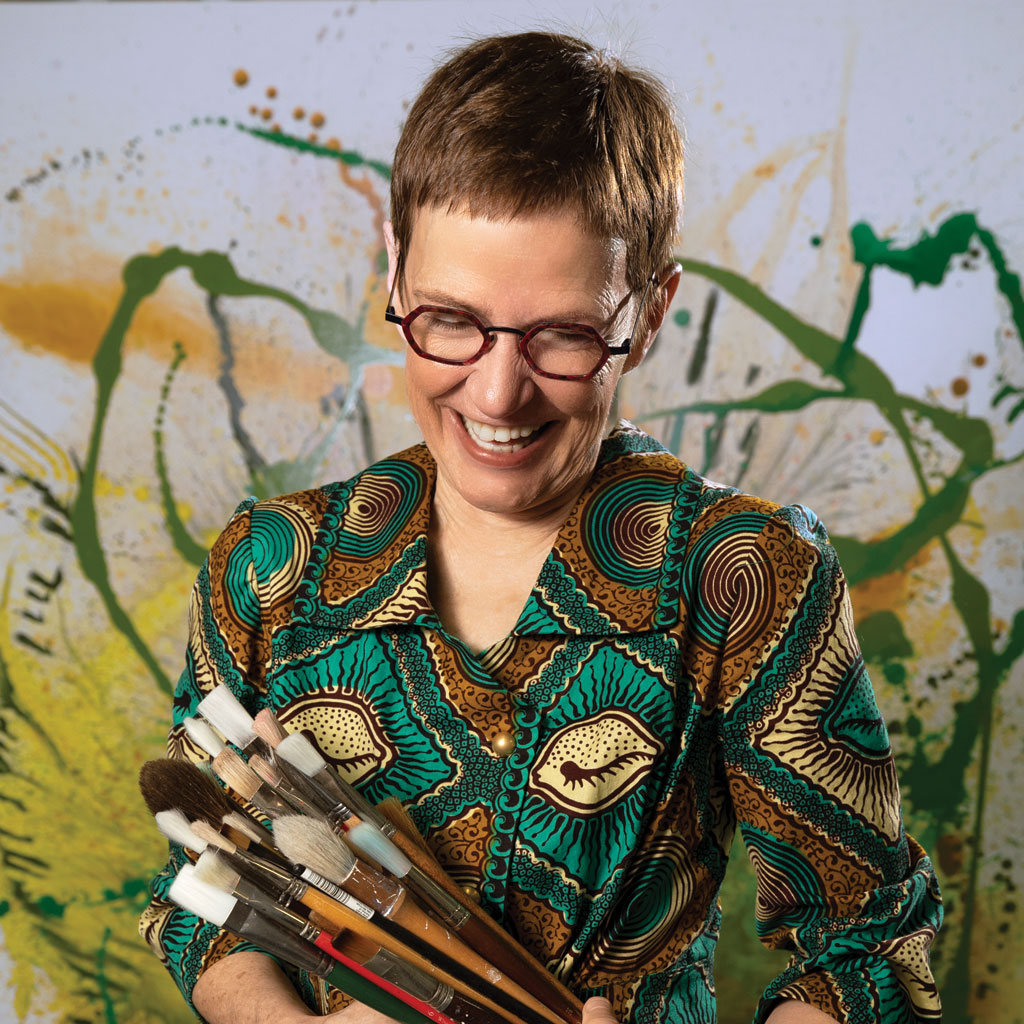
Condon finds abundant inspiration in local flowers and plants, with Lettuce Lake Park, Sunken Gardens and her own yard among her favorite spots, and you never know what will end up immortalized on her canvases. Recently, a fan sent Condon flowers from her garden and Condon found them so lovely that they became the subject of several paintings. That fan, Kali Rabaut, owner of Blue House Florals in Tampa, first saw Condon’s work at the Tampa Museum of Art (TMA) in 2017.
“I was a new mom, feeling isolated like so many new parents do,” she recalls. “I took my 1 year old to the museum in her stroller and was just immediately taken by the beauty and wonder of Elisabeth’s paintings. They were like water in the desert. They’re alive and bursting with movement and color. For me, her paintings reach a place in my soul that is beyond words.”
The Tampa Museum of Art holds a special place in Condon’s career as her first museum acquisition, with “American Pastorale” becoming a part of its permanent collection in 2016. She has since had her work added to other notable permanent collections in the Pérez Art Museum Miami, The Hudson River Museum in Yonkers, New York, and the U.S. Embassy of Beijing, China. Joanna Robotham, TMA’s curator of modern and contemporary art, sings Condon’s praises.
“Her painting is a fan favorite,” Robotham says. “She is an amazing colorist with an amazing palette. Visitors really gravitate toward her work. They can really identify with it.”
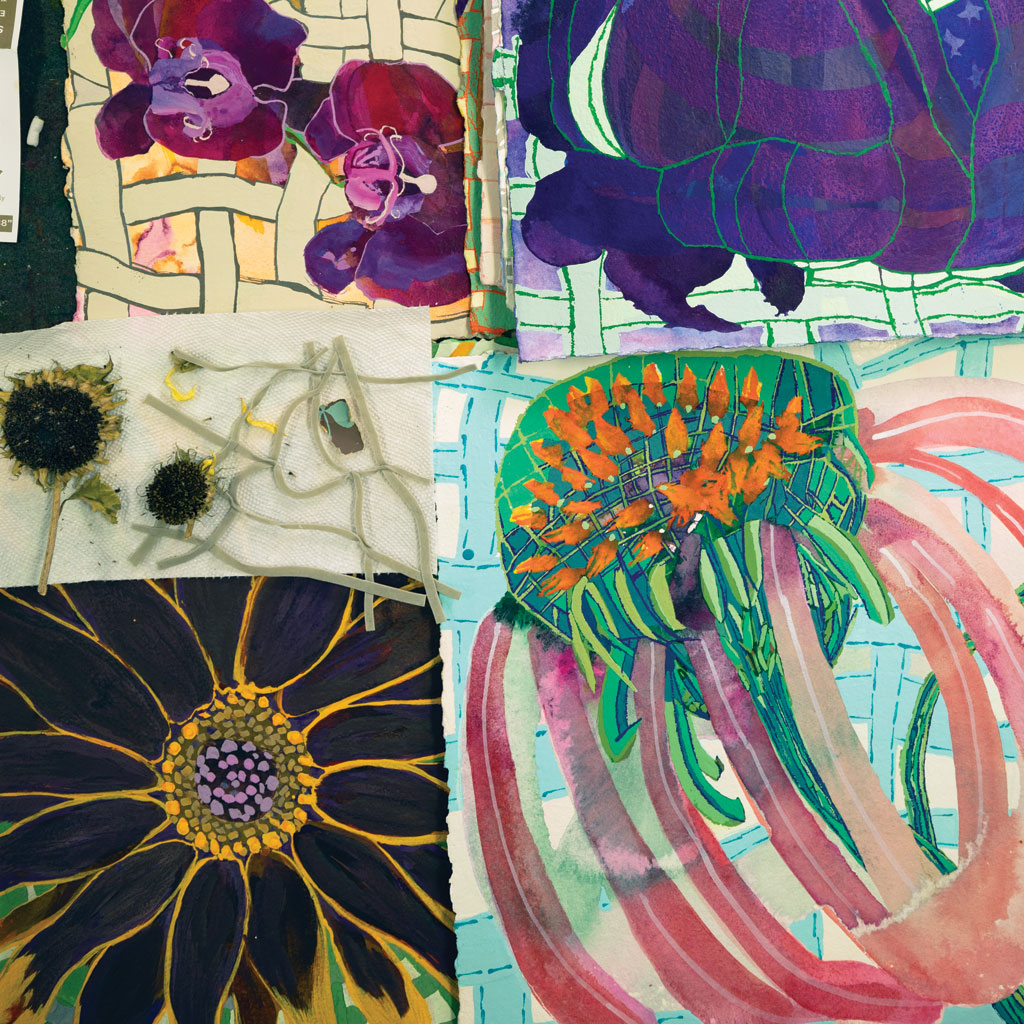
In fact, Condon won an Audience Choice award at TMA’s first Skyway exhibition in 2017, inspiring an offshoot featuring more of her paintings. Another public space where Condon is proud to have her art displayed is the Tampa International Airport (TPA), her first public art commission. Since 2017, “Verdant Tampa Bay’’ has been up at TPA’s international arrival atrium (Airside F3).
Airport marketing manager Kelly Figley says, “It is a spectacular welcome to all arriving international passengers. They love the natural imagery and vivid color palette.”
Condon moved to Tampa in 2003 to teach art as an associate professor of painting and drawing at the University of South Florida (USF) for 11 years.
“Teaching turned out to be one of the greatest parts of my life and it was a very big honor to cultivate an awareness of art that could add another layer to the culture here,” Condon reflects. “Florida changed my work by lightening its atmosphere, while being accountable to the students gave me confidence. I learned from them.”
During that time, she was invited to work at Graphicstudio, a world-renowned facility that produces limited edition prints. She is well recognized, having received the Joan Mitchell Foundation Painters and Sculptors Grant, the Pollock Krasner Foundation Grant, a Florida Individual Artist Fellowship and the 2015 Pulse Art Fair’s Pulse Prize.
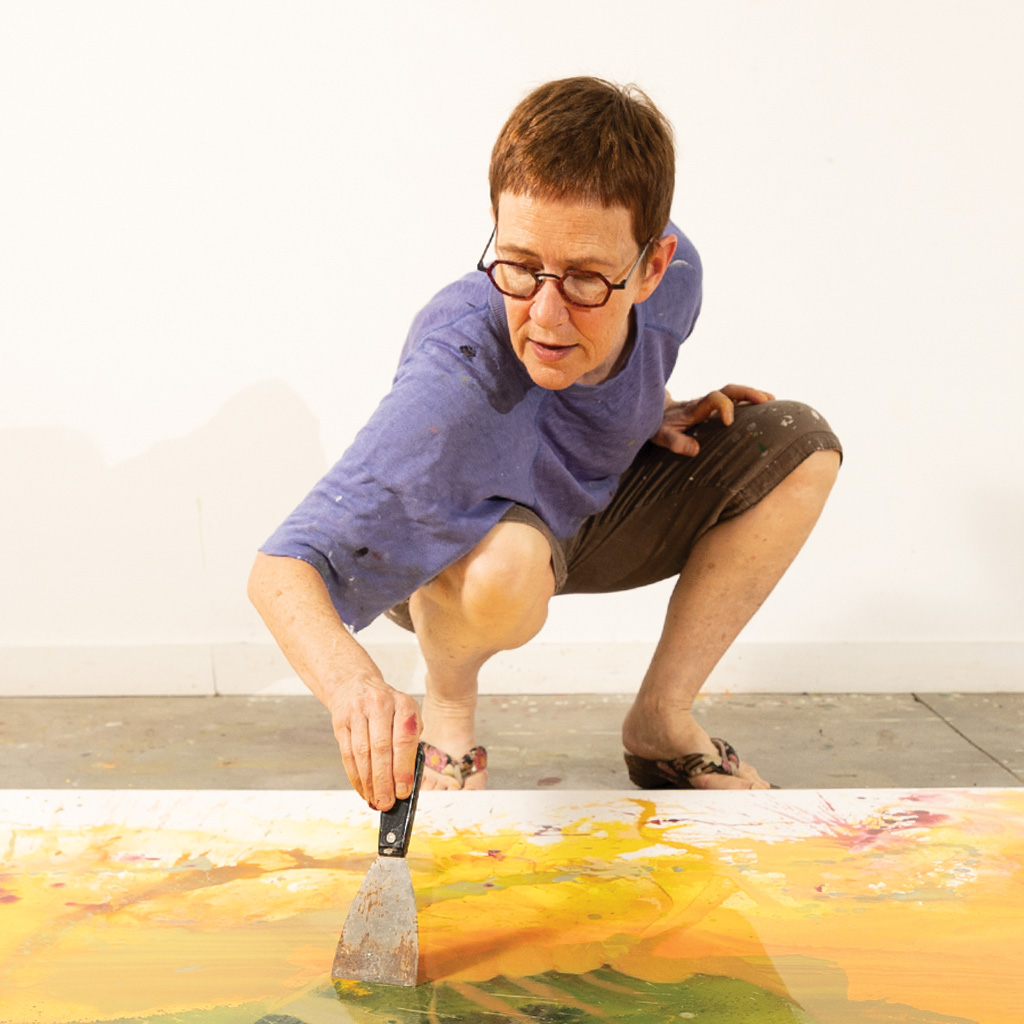
“She’s really quite revered in the community,” Robotham says. “She’s an artist who people really enjoy and love seeing what she’s going to do next.”
Condon’s work not only brings joy to Tampa, but it is also in numerous private collections throughout the United States, Europe and Asia. Her gallery, Emerson-Dorsch, is based in Miami; and her laminated glass windows enhance a New York City subway station.
Formally trained, Condon earned a master of fine arts from The School of The Art Institute of Chicago and a bachelor of fine arts from the Otis Art Institute of Parsons School of Design in Los Angeles. Born and raised in Los Angeles, Condon’s earliest memories of art are admiring illustrations in children’s books and patronizing museums with family and friends.
“Art made sense to me in a way that nothing else did because it could go beyond words,” says Condon, who was making art before she could speak.
Condon grew up in the 1960s and ‘70s with a father working as an insurance broker and a mother who raised the kids and lavishly decorated their house, adorning Condon’s childhood bedroom with vibrant flower wallpaper, Condon recalls with a smile.
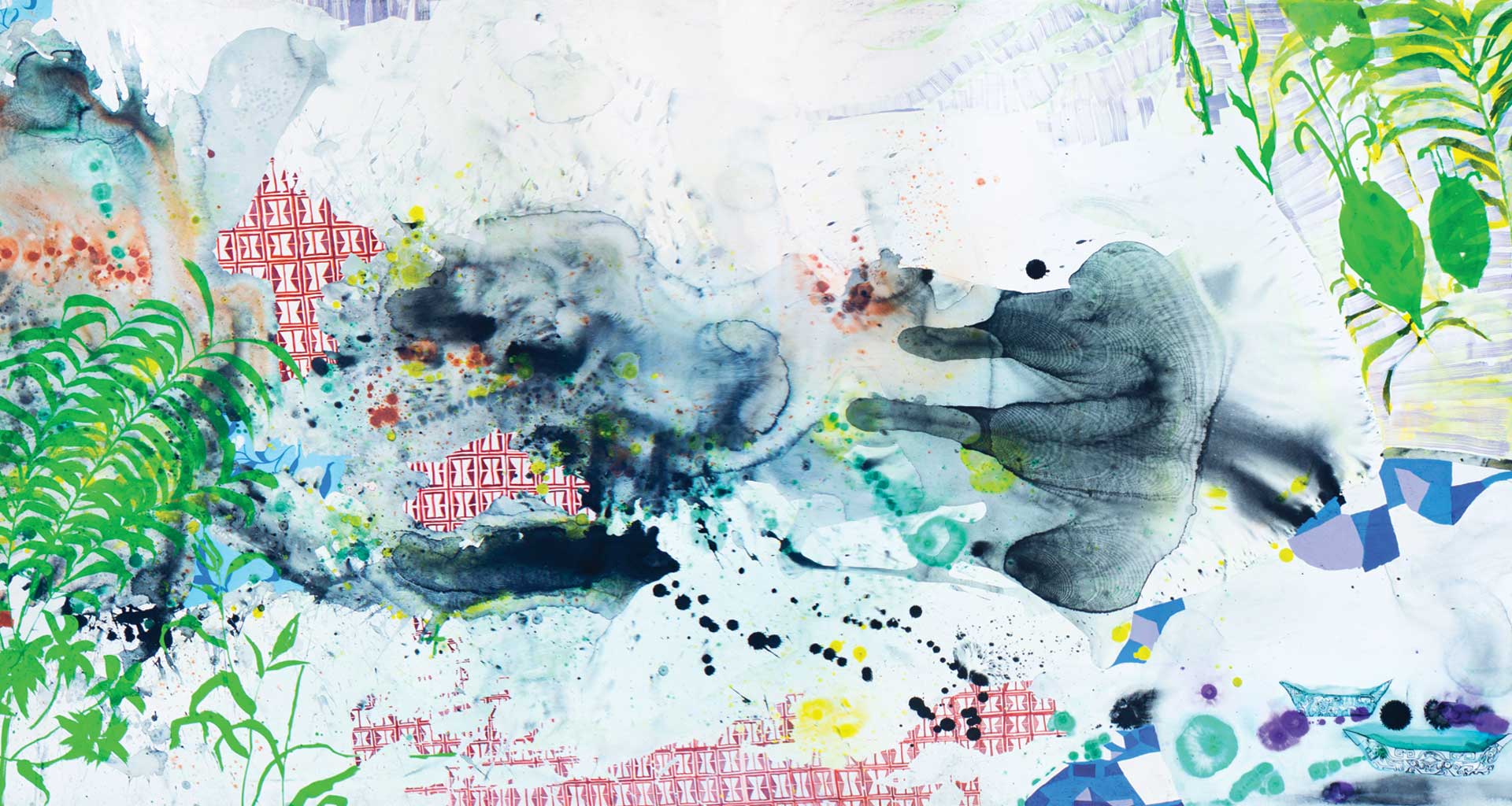
Her art evolved at the University of California at San Diego and UCLA, where she learned conceptual art, pattern and decoration while supporting herself doing window displays. By the time she left Otis Parsons, she was making long, unstretched canvas scrolls of symbolic objects. After moving to Chicago, she shed California light and space for tableaux of plastic dolls and flowers, which continued after she moved to New York. In Florida, she began to paint trees, discovered Chinese landscapes and started traveling to China, including for a 2009 exhibition and a 2014 residency. Her art developed a pouring technique, creating islands of activity along a landscape influenced by Chinese scrolls.
Each time Condon relocated, it caused a significant shift in her work because her surroundings deeply impact the way she paints. In New York, her oil paintings were denser, reflecting the more compact lifestyle, whereas in Florida she switched to thinner acrylic paint, creating big, open, lavish, colorful landscapes reflecting nature.
Condon’s husband, Karl Kelly, also is a painter, as well as a paint maker for Mount Vision Pastel Company and Marion Street Art Materials. They met in graduate school in Chicago 40 years ago and built their relationship upon art.
“Not a day goes by where art, especially painting, doesn’t come up in one way or another — either our own work or work we have seen or an interview we saw online,” Kelly shares. “Art has been the way that we understand and find our place in the world.”
It’s a gift that Condon shares to help others find their place too.


